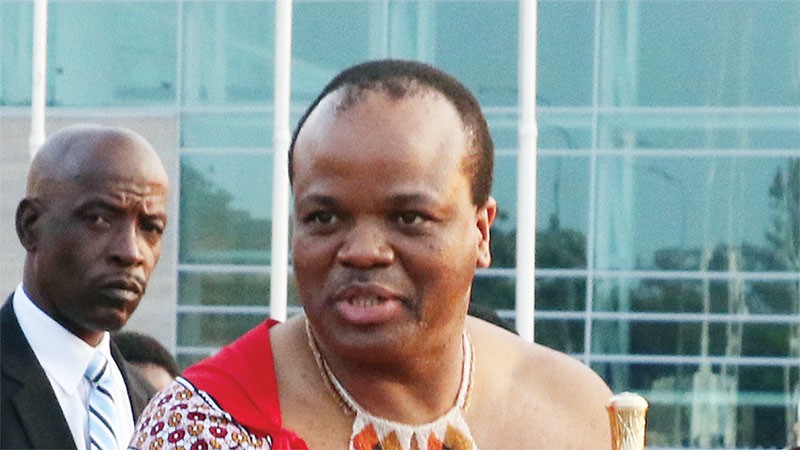Khama�s love for King Mswati III defies protocol
Bame Piet | Friday May 12, 2017 12:27


The same was not extended to Zimbabwean President Robert Mugabe during a similar visit in May 2015.
Mugabe’s visit as Southern African Development Community (SADC) chairperson came a month after reports that President Ian Khama walked out of a Heads of State Summit the Zimbabwean leader was chairing in Victoria Falls. Both Governments however denied such an act took place.
During Mugabe’s visit to the SADC headquarters in Gaborone, the Minister of Foreign Affairs Pelonomi Venson-Moitoi stated that there was no need for the host Government to roll out the red carpet for the chairperson of the regional block. Mugabe would later tell the media at the GICC that there was nothing wrong with him not being accorded the red carpet since the two countries enjoy good relations.
“We have concluded our tour as scheduled. It was not a tourist tour and we were in a working visit to see how the staff is doing and how they are responding to programmes agreed upon by SADC. We are very happy that the leadership of SADC is really in the right direction with our expectations.
“I want to thank you for your curiosity on why I am in Botswana - I did not come on a State Visit nor was it an official visit to Botswana. Botswana is headquarters of SADC and we can come here anytime to acquaint ourselves with progress that has been made and the State does not have to mount all that glamour and splendour of an environment we create when it is State or official visit,” Mugabe said.
SADC spokesperson, Barbara Lopi stated yesterday that the Secretariat has a clear policy that visiting chairperson should be accorded the red carpet at the Secretariat while their arrival at airport is the responsibility of the host country. She referred our enquiries to the Ministry of International Affairs and Cooperation who were not available for comment.
Meanwhile, SADC staff informed King Mswati III as employees they play an important role in the attainment of the organisation’s goals.
“The same notion is true for SADC, whose regionally-recruited and nationally-recruited employees, represent the nerve-centre for the attainment of Community’s regional integration goals. Living the dream of the Region’s forefathers and rallying behind the brand, ‘SADC’, into the future, is a privilege we as employees of this august Community have been given the responsibility and trust to support,” staff representative, Mojakisane Mathaha said.
The employees said that the Summit of SADC Heads of State and Government endorsed the creation of an environment at the Secretariat, where management and employees carry out SADC business in a mutually reinforcing manner.
“In this regard, the Secretariat implements human resource policies that are not only forward-looking, but also seek to ensure that there is professionalism, open communication, constructive criticism, problem-solving and, most importantly, achievement of results,” Mathaha said.
He added that since 2014, the executive secretary created virtual and physical platforms, which culminated into the very first SADC Staff Association, an interface that enabled them to present issues, suggestions and innovative ideas without fear of retribution.
“We are delighted to be able to stand before you as the Committee of the first ever SADC Staff Association. Throughout the Year 2016, employees have been able to access the executive secretary and the management of the Secretariat to deliberate on issues affecting employees in the workplace. For the first time, employees are able to participate in the Secretariat’s Management and Council meetings,” he said.
However, the employees expressed dissatisfaction over pending issues of their welfare that have not been resolved such as the organisation’s decisions regarding staff competitive remuneration, equitable job grading and staff retention at the Secretariat.
Mathaha said employees “feel that the removal of security allowance from their remuneration has resulted in an overall package which is lowest compared to other regional economic communities. Its resolution is also taking time to resolve. With regard to long-term contract framework, we are convinced that the March 2017 Council Decision has benefited some employees, while leaving out other equally affected ones”.
The Secretariat workers also stated that the new organisational structure is likely to result in shifts and imbalances affecting workload, as well as uncertainty on the future of some employees.
“The abovementioned issues are held dearest to the hearts of my colleagues, and their speedy resolution would help restore the optimal level of motivation and productivity among them.” Mathaha said.
